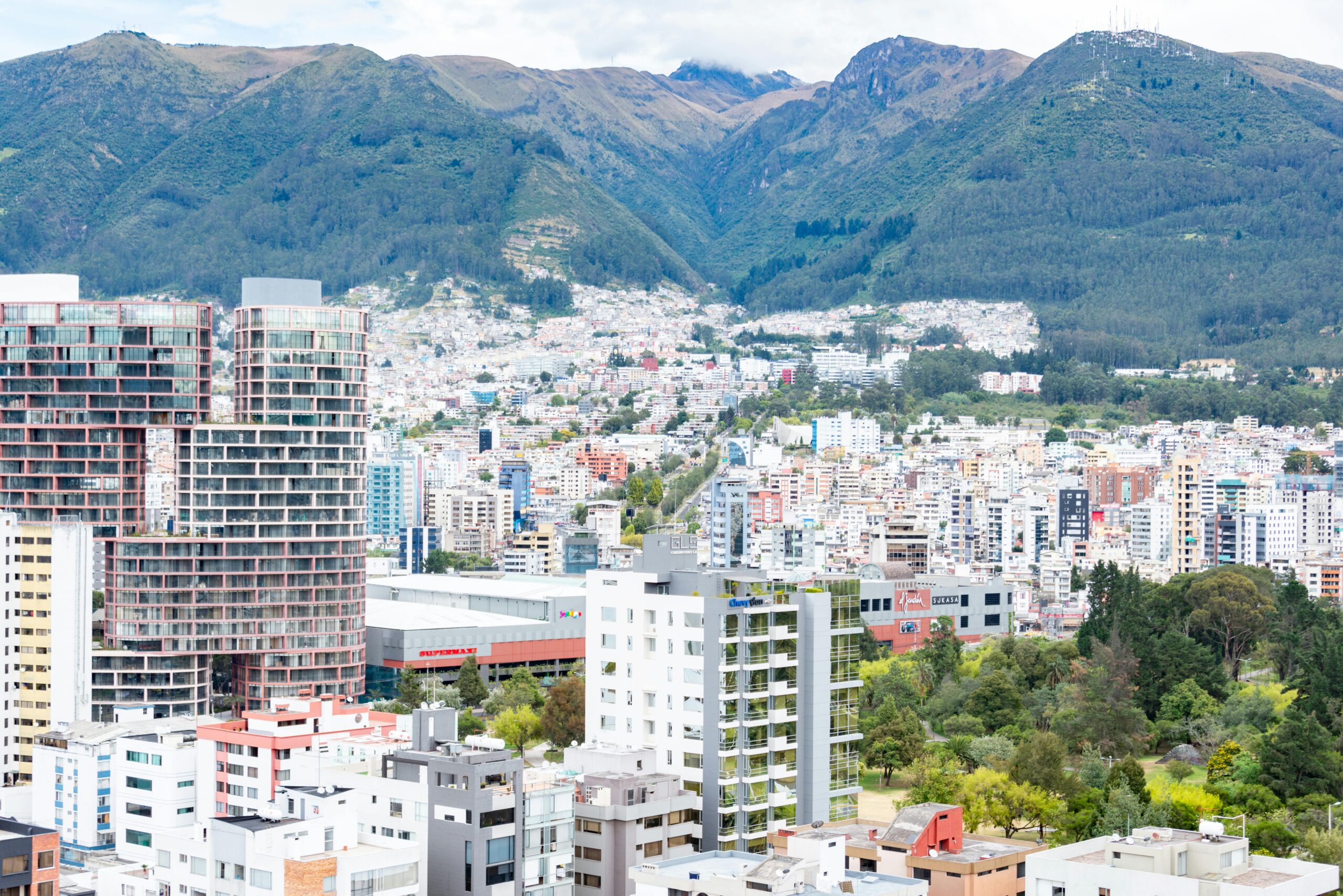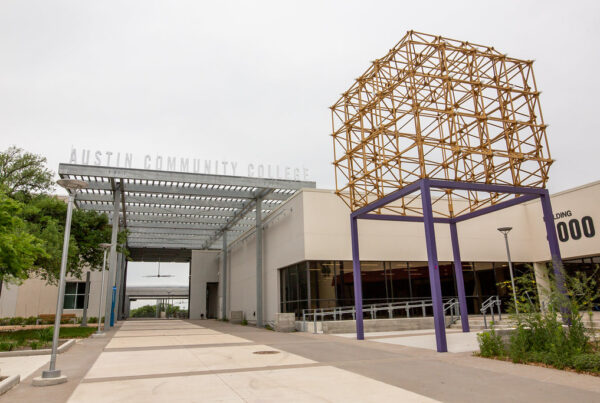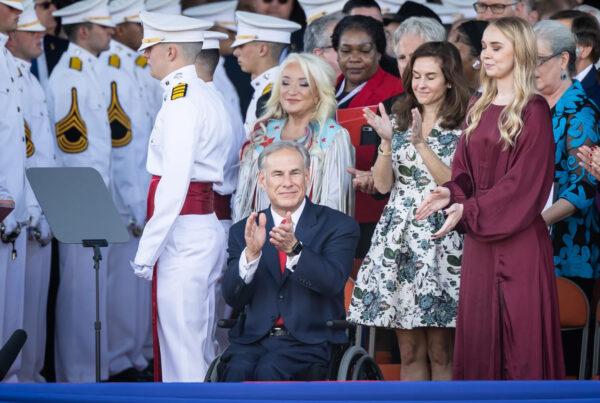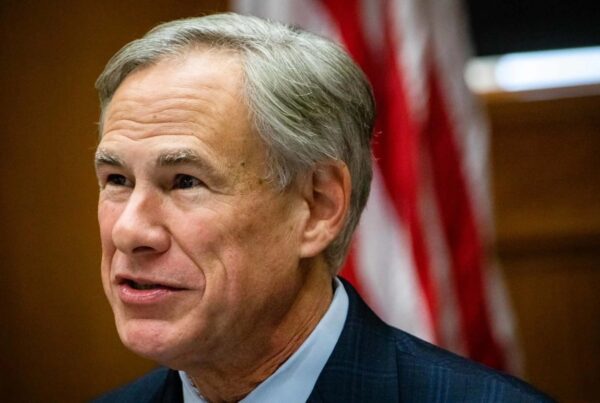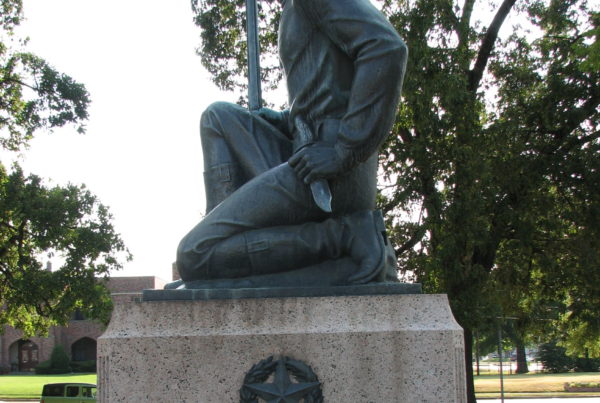In a region that is often caught up in some kind of turmoil, Ecuador has long been a peaceful exception.
In recent weeks though, organized crime in Ecuador has thrown the country into chaos. Gangs attacked prisons and jails to free high-profile members. Explosions and violence spilled out into the streets of the country’s major cities as the president called for the military to “neutralize” the responsible gangs.
But the ripples of this conflict extend far beyond Ecuador.
María Cristina Rosas, international relations professor at the National Autonomous University of Mexico, spoke to Texas Standard about the United States’ potential role in resolving the crisis. Listen to the interview above or read the transcript below.
This transcript has been edited lightly for clarity:
Texas Standard: You recently wrote an essay describing the significance of the situation in Ecuador for Texas and the United States. There’s a state of emergency in Ecuador right now. What are the major impacts that you are concerned about?
María Cristina Rosas: Well, this crisis is of concern to Ecuador, to Latin America, to Mexico and the U.S., because it is related to the growing influence of organized crime, of transnational organized crime in the region.
And then we have another issue that needs to be addressed, which is the role of China as a growing economic investment partner for South American countries. In my view, the fact that the U.S. has not paid enough attention to the events in Ecuador in recent years has also contributed to these major crises.
Well, but I guess the question is, what role, if any, might the U.S. play in trying to stabilize the situation?
Well, at the very same time Ecuador is having this crisis, the U.S. decided to attack the Houthis in Yemen. So Yemen and the Middle East apparently seem to be more important than the events that are happening in Latin American countries.
That, in my view, may have to change because an unstable Latin American region means the U.S. would be less able to deal with all major problems in the world.
So it is very important for the U.S. to work on fighting drug crime, to support institutions in Ecuador. Institutions in Ecuador are collapsing. Organized crime has taken control of them. So I would say the U.S. can play a very important role in these matters. And also it should help to invest in development, which is a major challenge in Ecuador.
How best can the U.S. then support Ecuador? If not through the use of military, which of course has been thrown out in opinion columns and that sort of thing – how best can the U.S. leverage its power to assist Ecuador right now?
Well, first of all, I could say it is necessary for the U.S. to stand publicly by Ecuador. I haven’t seen any endorsement by President Biden, for instance. I’m not sure that Latin America is important for for the U.S., with the exception of Mexico.
So then comes the implementation of cooperation programs for, you know, institutional building, support in democracy, fighting poverty and inequality. I would say those would be very important steps – a good sign, a good message against organized crime.
But, professor, is there not a danger, though, that if you have a situation in which the Ecuadorian president has labeled these cartels terrorist groups, that anything the U.S. might do to show more broadly open support for the government here might be seen as the U.S. trying to be a bit heavy handed in a region where its presence has not always been welcome?
Well, you know, when Rafael Correa was president, the military base located in Manta was closed. This military base was very important. It was an American military base to fight drug trafficking. Since then, drug trafficking in the Andean region has grown dramatically.
I’m not saying that the U.S. should use its military power to put order in Ecuador. What I would say is that politics matters. Diplomatic efforts should be shown more prominently than we have seen until now.
So what matters? Probably, as I mentioned, some programs – not using the military force, but showing support for development programs. You know, a statement by President Biden as such could make a difference.


